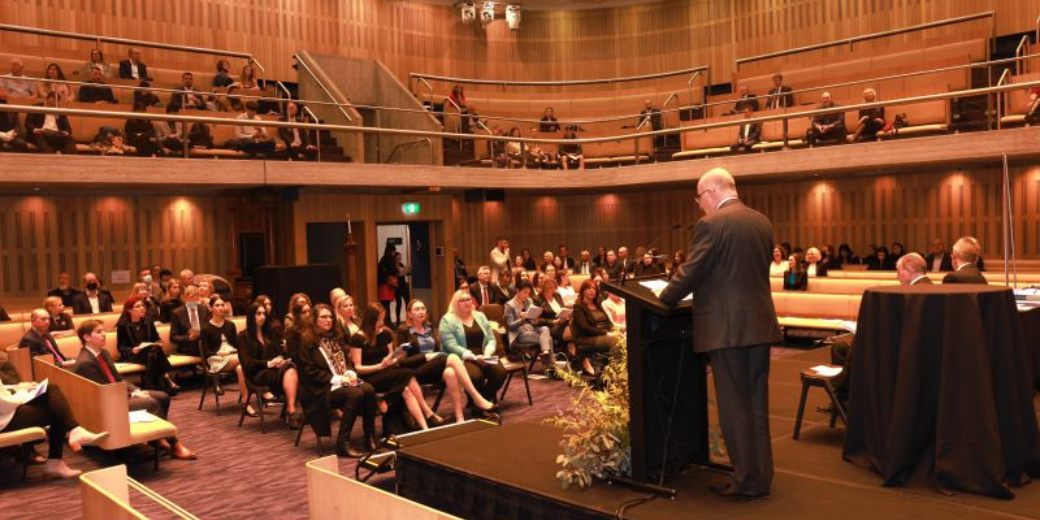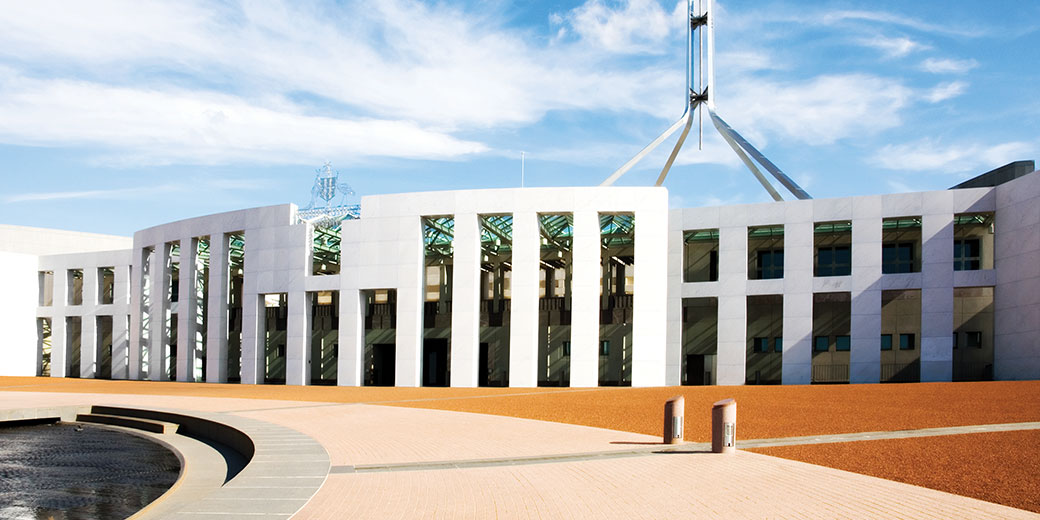Access to justice is limited for many and while the Commonwealth Government encourages pro bono activity, it is not mandated. Could there be a better way? We talk to Luke Geary, Partner at Mills Oakley and Chairman of Everyday Justice, and Terri Mottershead, Executive Director, the Centre for Legal Innovation (CLI) at the College of Law, to find out what could be done differently to help address the justice divide.
The Australian Pro Bono Centre’s (APBC) recent Annual Performance Report identified an overall uplift in pro bono hours in FY2022 contributed by Australian lawyers. And while the pro bono contributions are significant, the report reflected a greater participation by individual solicitors, barristers and small firms, while only 39% of large firms achieved the centre’s annual National Pro Bono Target.
According to Luke Geary, these figures could be impacted by additional factors, like the form of pro bono measurement and the type of areas a firm specialises in.
“I think caution needs to be exercised in some of these statistics. They may represent a lack of diligence by firms in getting their teams to do pro bono work; or they may reflect a lack of specific skills within the firms to meet the needs of clients whom they can assist on a pro bono basis.”
Not every firm has expertise in the areas vulnerable clients require, this can include criminal law, family and children’s law, employment law, debt, housing, social security law and family migration/refugee law.
“Big firms tend not to have the risk management across the full gamut of legal services required for those in need – so this may in fact reflect a ‘supply’ issue; or a ‘matching’ issue,” Luke explains. “Or it could simply be that the measurement isn’t quite right yet.”
Should a pro bono auditing system be implemented?
No one would argue that any form of legal pro bono contribution, no matter the number of hours, is not valuable or to be appreciated. Nor that many in the profession hold a strong desire to use their talents to help others. Where complications arise is when a particular firm benefits commercially from the number of pro bono hours recorded, such as becoming a certified member of the Whole of Australian Government Legal Services Panel. Once an approved panel member, the respective firm is considered in the procurement of external legal services by government.
“I do think there should be rigour with this if the particular firm is gaining a commercial benefit as a consequence of having performed pro bono work – at the end of the day, honesty and transparency should prevail,” Luke says. “Audits, however, should consider the ultimate benefit to the ‘end user’ and should not be so inflexible as to misunderstand the model of service delivery a firm is deploying to help people in need.
“I believe there should be a form of verification of the work that is being done, having regard to the commercial value of work being received by firms from the Commonwealth and the need for the Commonwealth to be able to use its procurement processes for downstream savings for society.”
Could there be greater consistency in how pro bono hours are measured?
While an audit process would assist with transparency, creating a standardised form of pro bono measurement would assist with consistency. The definition of what forms pro bono work is outlined in detail on the APBC’s website and the APBC’s National Pro Bono Target is a widely accepted benchmark. The Commonwealth government requires all legal providers to sign up to the APBC Target.
As Luke explains, the measurement of pro bono contributions has evolved over time.
“Historically, some firms would report on the $ value of their contributions – but that is entirely subjective because the firm could apply any $ hourly rate to the relevant lawyer; even though that $ rate would not reflect the market value of the community legal service being provided. For example, if a lawyer at a legal aid service made the contribution, they may be inclined to calculate it at a rate of something like $150 per hour. If the same service was provided by a partner at a large firm, a notional $900 per hour may be applied…obviously, there is a problem there.
“For this reason, in recent years the trend has been moreso to report the number of hours contributed. That is a more meaningful (but not perfect) way to calculate the value.”
Even with these improved protocols in place there can be inconsistencies in how various pro bono contributions are delivered.
“I say it is not perfect because calculating the value of hours does not take into account the fact that two lawyers performing identical tasks for the same hypothetical client may approach the matter very differently – one may perform the work efficiently; the other may over-service the client,” Luke continues. “The overservicing does not necessarily represent a better valued product; rather, it may represent a less qualified practitioner performing work out of their depth…the issue is vexed but we should not get bogged down in it because at the end of the day, people are generously giving their time and talents to people who need them.”
How to better ‘match’ pro bono service with demand
As highlighted in the Law Council of Australia’s Justice Report back in 2018, there are critical gaps in the Australian justice system that prevent many from accessing appropriate legal services. The better firms can ‘match’ their areas of expertise with those in need, a greater access to justice can be provided. This may take the form of aligning with not-for-profit advocacy organisations or state-based Legal Aid Commissions, or it may take the form of an in-house initiative like Everyday Justice, which is a philanthropic initiative of Mills Oakley.
Mills Oakley formed Everyday Justice to service those who fall between the cracks, people and organisations who cannot access means-tested legal aid services or afford a private lawyer without incurring substantial financial hardship. Everyday Justice offers legal services best ‘matched’ to available expertise. These include:
- Employment and workplace issues
- Tenancy, housing and eviction issues
- Credit and debt issues
- Financial abuse matters
- Fines and infringement matters
- Discrimination matters
- Bankruptcy
- Climate change law matters
As Chairman of Everyday Justice, Luke has witnessed a whole new category of struggling Australians who have arisen from the pressures of the pandemic – that is small business owners who were crippled by lockdowns and associated debt. But according to Luke, there has been one small silver lining driven by the pandemic.
“The pandemic has opened up opportunities with the increased capabilities for accessing legal services through phone/video/other remote means,” Luke says. “This means that, subject to the digital divide in the country, location is largely irrelevant. Firms seeking to focus on a mix of metro/regional/remote service delivery can demonstrate a strategic approach to pro bono services.”
Integrating pro bono work into the education process
Terri Mottershead, the College of Law’s CLI Executive Director and board member for Everyday Justice, works in partnership with the team coordinating internships between the program and the college’s PLT students. The internships provide a holistic learning environment for law graduates and newly qualified lawyers who are interested in gaining legal experience in social justice and public matters. Internships are available in Sydney, Melbourne, Brisbane, Canberra and Perth and offer students an exciting work experience opportunity.
“The desire to help people and serve our communities is why most of us became lawyers,” Terri says. “Everyday Justice does important work and it’s making a difference. Feedback from our PLT student interns confirms that working with EJ clients is a special experience for them, something they will not forget and work they hope to continue once admitted. The time spent on mentoring our students by the amazing lawyers at Everyday Justice is also a big part of what makes this opportunity exceptional.”
For those interested in the internship program please head to the link here to apply on the College of Law Jobs Board.
The tradition of giving back is here to stay
In Luke’s view, the desire to give back within the legal profession has always been present and will continue as a lasting legacy:
“Lawyers for the most part, get into the profession because of a deep sense of service and desire to help people, particularly those less fortunate. As we enter the profession and experience the vast array of different types of law to practice in, we choose our niche, but I don’t think that lawyers ever lose that desire to use their talents to ‘help’ people.
“In my observation, those contributions helping people have been given at all levels; small firms and large, and everywhere in between. Lawyers volunteering in clinics, taking referrals from clearing houses, helping with policy submissions to achieve change for the disadvantaged and in many other significant ways. I think that has always been and will always be there.”

















































![How to handle Direct Speech after Gan v Xie [2023] NSWCA 163](https://images4.cmp.optimizely.com/assets/Lawyer+Up+direct+speech+in+drafting+NSW+legislation+OCT232.jpg/Zz1hNDU4YzQyMjQzNzkxMWVmYjFlNGY2ODk3ZWMxNzE0Mw==)








































